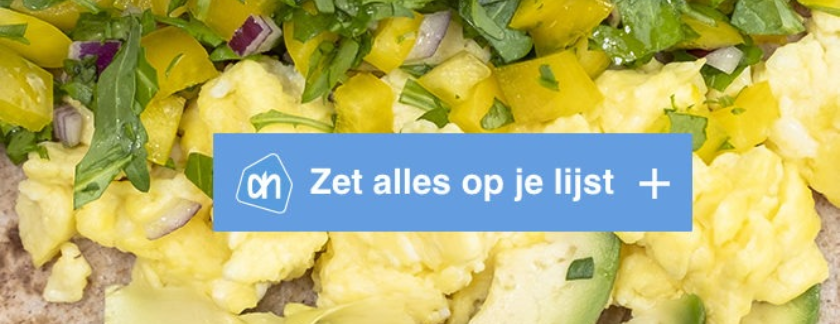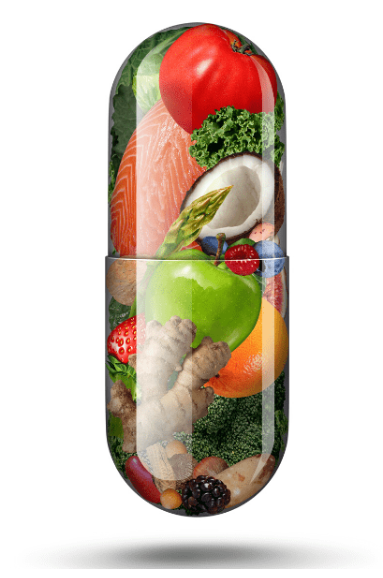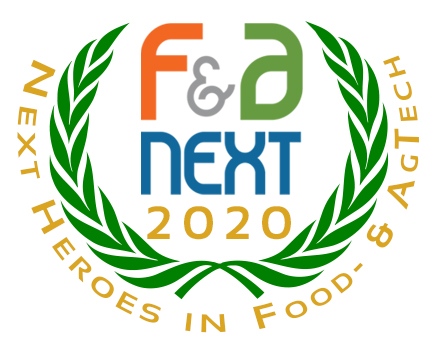Healthy eating should be easy for everyone – including those with chronic medical conditions and specific dietary needs, according to the founder and CEO of personalized nutrition platform Verdify.
Launched in November 2019, Verdify is an artificial intelligence platform that links food retailers’ recipe databases with consumers who have special dietary requirements. Users can choose recipes they like on the retailer’s website, with ingredients that can be modified to fit their requirements and, if they wish, these are added to an online shopping list. Currently, the platform caters to those on low salt or low carbohydrate diets, pregnant women, and those with gut health problems, such as Irritable Bowel Syndrome (IBS) and Crohn’s Disease.

The company’s CEO, Jochem Bossenbroek, has an MBA and a background in biotechnology and life sciences. He said Verdify stemmed from his frustration with health
providers’ overwhelming focus on treating symptoms rather than preventing them from developing in the first place.
“I got more and more frustrated to see how much money was going towards medicine for symptom relief rather than prevention,” he said. “At the same time, I was working with researchers who were studying the links between nutrition and health…Very little of this knowledge is used in practice, so that was really the spark to start this company, Verdify.”
An individual approach
The potential is enormous, considering how many people suffer from long-term health conditions that need to be controlled through diet. IBS alone is thought to affect as many as one in seven people in the world, and an estimated 1.1 billion people have hypertension, requiring a low-salt diet to reduce their risk of heart disease and stroke. The low-FODMAP diet recommended for IBS sufferers excludes about 100 ingredients, so automating the process of adjusting recipes is particularly welcome.
People with health conditions often are given recipe ideas and dietary plans to follow, but what makes this platform different is that it takes into account everything from medical information to allergies and personal food preferences and then adapts to fit the individual. The company has a dietitian and recipe developer on its team – along with a medical doctor – whose expertise fed into the platform’s development, a process that took about two years.
“What we did was try to copy her brain into the software, her way of thinking about how to adjust a recipe to meet dietary challenges, and that’s why it took a lot longer than anticipated,”
Jochem Bossenbroek
“It is not only about replacing ingredients, but also about changing the cooking instructions, which is even more challenging…We wanted to make it as easy as possible to follow a complex diet.”
Tapping into existing databases

Originally, the plan was to build a consumer-driven platform, but the team soon realized they could achieve much more by working directly with businesses.
“Food retailers have a large online collection of recipes and they are used a lot,” he explained. “Some of the Dutch retailers have more than a million visitors a month just looking at these recipes.”
Verdify’s first step toward this business-to-business approach was sparked after it linked its consumer platform with the supermarket chain Albert Heijn. Members could see recipes that matched their personalized profile, and after selection, they could connect with the supermarket for delivery or pick up of the ingredients.
“We then got calls from other supermarkets who were interested in how we adapted and personalized these recipes,” he said. “…Then we realized we could reach a much bigger audience by implementing our technology on the recipe websites of retailers so that all their visitors were directly reached.”
“We are now working with a team that specializes in artificial intelligence to automate any steps that we are still doing manually at this time,” he added.
Apart from licensing its technology to supermarkets, the company also is targeting home meal delivery companies and even kitchen appliance manufacturers, which supply recipe ideas to inspire their customers.
Shifting ambitions
The shift from its initial consumer-focused approach to a business-to-business one has allowed the company to do more with less marketing investment, Bossenbroek said, but it also has required a change in mindset.
“We started with the ambition to focus mainly on the people with a chronic condition, and now of course we are talking with retailers whose consumers are more about the mass market and diet options, people who want to stay healthy or do more sports,” he said. “That’s a little bit of a shift in the mentality – in our mentality mainly.”
Broader applications

Still, the idea is to adapt the platform to a wider range of medical conditions. Preparing people for chemotherapy is one area that particularly interests Bossenbroek, helping cancer patients to start treatment as well-nourished as possible, and to tackle common side-effects during therapy, such as a sensitive mouth and weight loss. In addition, he would like the company to help bridge the substantial gap that exists between life sciences and personalized nutrition, by linking results from DNA tests, blood tests and stool analysis with users’ personalized profiles.
The company also is making its technology available for use in clinical trials on a not-for-profit basis, and it is already working with researchers at Wageningen University on dietary interventions for Crohn’s disease and ulcerative colitis. Study participants are guided in their meal decisions with Verdify.
“We would like to contribute to clinical trials that want to test dietary interventions,” he said. “I think there is a big need for randomized controlled trials to find out what the impact is on a large scale…We do want to take this internationally and expand the functionality to all kinds of medical conditions.”
Working with StartLife
Bossenbroek first came across StartLife at a conference, where he met one of the coaches and decided to apply to the programme. For him, working with StartLife brings three main advantages.
“Firstly, they are a good sounding board,” he said. “If we have any strategic issues, they can provide relevant advice…Later on, they could provide funding of course.”
Finally, he says being affiliated with StartLife provides a seal of excellence in itself.
“When we go to conferences, people recognize that we are part of StartLife and see that as a positive, that we are a serious company,” he said.

Verdify already has received widespread recognition for its innovative platform. It was selected by F&A Next and Foodbytes! by Rabobank as one of eight Next Heroes in Food & AgTech 2020, and on June 11, the company will showcase its technology in the finals of the Blue Tulip Awards.
